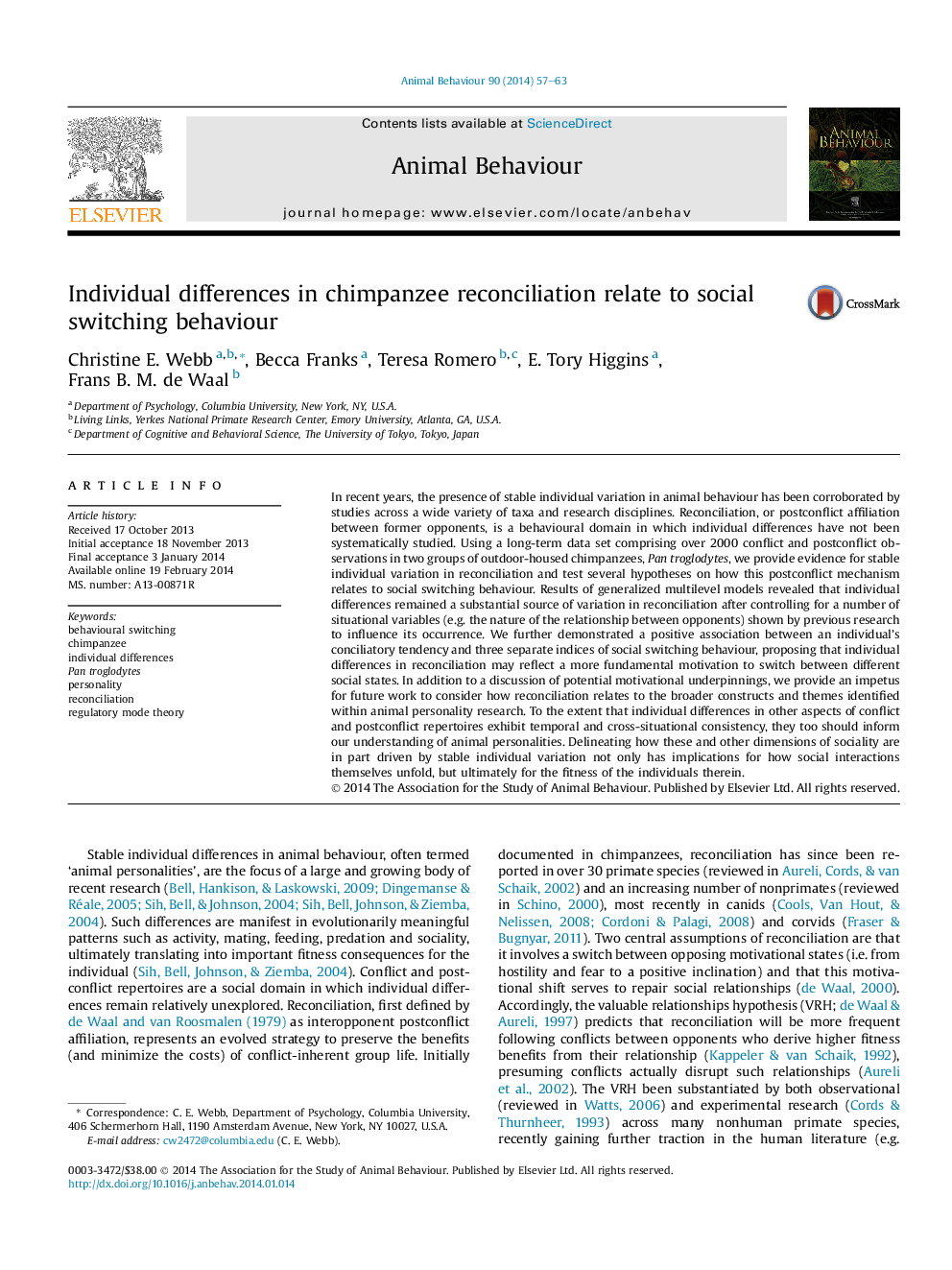| Article ID | Journal | Published Year | Pages | File Type |
|---|---|---|---|---|
| 2416377 | Animal Behaviour | 2014 | 7 Pages |
•We demonstrate stable individual variation in chimpanzee reconciliation.•We relate conciliatory tendency to a basic motive to switch between social states.•Strong conciliatory tendency relates to higher social behaviour/partner switches.•Strong conciliatory tendency relates to lower average latency to reconcile.•Reconciliation depends not only on dyad, but also on individual characteristics.
In recent years, the presence of stable individual variation in animal behaviour has been corroborated by studies across a wide variety of taxa and research disciplines. Reconciliation, or postconflict affiliation between former opponents, is a behavioural domain in which individual differences have not been systematically studied. Using a long-term data set comprising over 2000 conflict and postconflict observations in two groups of outdoor-housed chimpanzees, Pan troglodytes, we provide evidence for stable individual variation in reconciliation and test several hypotheses on how this postconflict mechanism relates to social switching behaviour. Results of generalized multilevel models revealed that individual differences remained a substantial source of variation in reconciliation after controlling for a number of situational variables (e.g. the nature of the relationship between opponents) shown by previous research to influence its occurrence. We further demonstrated a positive association between an individual's conciliatory tendency and three separate indices of social switching behaviour, proposing that individual differences in reconciliation may reflect a more fundamental motivation to switch between different social states. In addition to a discussion of potential motivational underpinnings, we provide an impetus for future work to consider how reconciliation relates to the broader constructs and themes identified within animal personality research. To the extent that individual differences in other aspects of conflict and postconflict repertoires exhibit temporal and cross-situational consistency, they too should inform our understanding of animal personalities. Delineating how these and other dimensions of sociality are in part driven by stable individual variation not only has implications for how social interactions themselves unfold, but ultimately for the fitness of the individuals therein.
